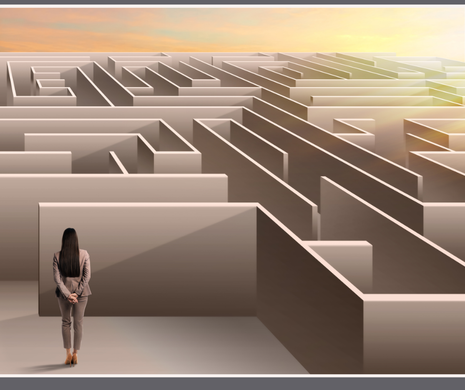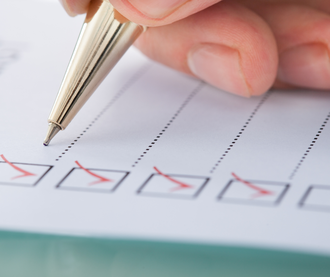|
May is mental health awareness month. It was started in 1949 as a means to address the many challenges faced by millions of Americans living with mental health conditions. I believe that health is so much more than the absence of illness or disease. Today’s world presents many challenges and the physician population is not immune. I held hope that the COVID-19 pandemic would shine a light on the problems within our healthcare system, especially the barriers that prevent physicians and other medical professionals from providing care for patients. But only a few short years later and it seems that conditions have only gotten worse. Many of the physicians I talk to are working in toxic environments, and feeling burned out and exhausted. If you are one of them, you may truly desire to find a way to care for patients in a model that doesn’t require you to work in a way that sacrifices your own health and well-being. Or, you may be considering a transition away from patient care to a nonclinical career. Regardless of the path you ultimately decide to pursue, it’s important that you do so with intention, clarity, and confidence. In my work supporting physician clients in career transitions, I talk about “the power of the pause.” It can be really easy to make decisions based on what you’re moving away from. In the corporate world, there are many articles on crafting your “escape plan”. Now don’t get me wrong. An exit strategy is important as a part of your larger career transition plan. But it shouldn’t be the driving force. Instead, it’s important to focus on what you want to intentionally move towards. Finding the space and time to give enough attention to what you want next can be challenging in our busy lives. Which is why pausing to reflect before making a major career transition is key to landing in a better fit position. So, before you take that leap into a new career path, I encourage you to embrace the power of the pause. I’ve broken it down into five Rs: 1. Retreat: Take a step back from the hustle and bustle of your daily routine. Find some quiet time to turn inward, away from the noise of the world. This could be a weekend getaway, 5-10 minutes in the shower a few mornings (or evenings) a week, or simply a quiet moment alone with your thoughts. The aim is to create pockets of time where you can begin to get clear on what’s working, what’s not working, and what’s missing from your life and career. This information will be useful as you’re making decisions about what’s next. 2. Reconnect: It's essential to reconnect with yourself, especially if it's been a while since you last checked in. Who you are now might be different from who you were when you first decided to become a doctor. Explore your passions, your values, and what truly brings you joy. The things that light you up and make your heart sing apart from your identities (doctor, parent, sibling, partner, etc.). 3. Reflect: This is the heart of the process. Reflect on what matters most to you at this stage of your life and career. What are your core values? What are your long-term goals? Taking the time to ponder these questions can provide invaluable clarity as you consider your next steps. 4. Remember: You're not alone in this journey. Remember that you have a support system in your existing network of colleagues, friends, and mentors. Don't hesitate to reach out for guidance or simply a listening ear. Additionally, consider expanding your network to include others who can offer fresh perspectives and opportunities. I’m a big supporter of creating an emotional support squad. I assembled mine in 2023 after attending a mastermind event that encouraged this, especially for professional women who are the ones that everyone leans on. 5. Rebrand: As you move forward, think about how you want to present yourself to the world. The YOU of TODAY. Not who you were when you started this medical journey. This is your chance to redefine your personal and professional brand and share your authentic self with others. Embrace who you are now and what you're intentionally choosing as you embark on this new chapter. By incorporating these five Rs into your transition process, you'll not only gain clarity on your career and life goals but also ensure that you're moving forward with confidence and purpose. So, before you rush into your next career move, remember to hit the pause button. Your future self will thank you for it. Which of the five Rs feel most challenging for you? Comment below and let me know. I’m happy to share potential strategies to help you overcome the challenges.
0 Comments
If you’re a physician who has thought about making the leap to a nonclinical career, you’re not alone.
In January 2022, the AMA published an article about medicine’s great resignation noting that 1 in 5 doctors plan to exit in 2 years. The surprising thing is that many physicians think about leaving medicine for years before they actually do it and some never take the steps required to make the change. If you’ve been thinking about making the move for more than 6 months, here are a few myths that may be contributing to your delayed action. Myth #1 - You have to stay in the same career/position for the duration of your career It's natural to want different things as your priorities shift throughout the seasons of your life. And if you think that there is something wrong with wanting a change, you may unknowingly sabotage your efforts to do so. You don’t need a “valid reason” to justify exploring a new career path such as a move to support your spouse or significant other, or to stay home with the children (yes, men I’m talking to you too as an increasing number of men are deciding to be stay-at-home dads so they don’t miss out on their kids early years). Give yourself permission to want what you want. If that means a change of position or career, so be it. Whatever your reasons, don’t be afraid to dream. I think it is a dying art that needs to be revived. If you believed that anything was possible and knew you couldn’t fail, what would you want to do? If you haven’t asked yourself this question in a while (or ever), carve out a little dream time this week to see what comes up. Myth #2 - Leaving clinical practice means you aren’t a doctor anymore. This was a big one for me. I remember the first time I asked myself the question, “What if I don’t want to be a doctor anymore?” In truth, the question I was really struggling with is, “What if I don’t want to see patients anymore?”. This was the one picture I had in my mind of what a doctor was and after all of the time, energy, and sacrifices how could I simply walk away from it all? I’ve learned a lot since then and now know that there are limitless ways that you can make a meaningful impact on health without seeing individual patients. But, the one thing that I want to emphasize is that once you’ve earned your medical degree, and the title of doctor, you are and will always be a doctor. You are a physician. No one can take that achievement away from you. Myth #3 - If you just work a little harder and wait long enough, things will get better. This one is a trap that many physicians fall into. We tend to be hard workers naturally. This leads to a tendency to overwork. And that overworking can keep you stuck because you never have time to even explore what could be possible outside of your current job. When you’re always exhausted and often feeling overwhelmed, there is no energy to consider the questions that arise when making a big decision like this. Before I made the decision to pursue a nonclinical career, I kept trying to reinvent myself within my organization. I accepted new responsibilities thinking it would make work feel better. The problem was that I didn’t release any of the existing tasks on my plate and ended up working more than before the change. And then when I decided to cut back on my time (lower FTE), the result was working the equivalent of a full-time position but getting paid less. The definition of insanity is doing the same thing over and over and expecting a different result. Don’t fall into this trap. Be honest with yourself about your situation. And if you’re just too close to it and need a more objective view, seek out a trusted advisor or close friend who has your best interest at heart and will tell you the truth. Myth #4 - You have to be unhappy in your career/position to consider new opportunities. When you’re frustrated and unfulfilled in your career, it makes sense to think about making a change. But did you know that you could explore new career directions when you’re satisfied with your work? Most people consider making a change at some point in their career and physicians are no exception. As you gain more experience and skills, you may find that you want to learn how to leverage your expertise in different ways. Investigating career growth strategies can help you augment the success of your long-term career trajectory. By proactively taking ownership of your career growth, you can intentionally drive the direction of your career path with exciting and lucrative professional development opportunities. Myth #5 - You can’t leave your current clinical position until you have a new nonclinical one lined up. There are different reasons that you may decide to leave your current clinical practice before you’ve secured your desired new nonclinical position. You may be burned out or in the midst of a personal health crisis for you or a loved one. If you’re in a toxic or abusive environment you may need to leave urgently without adequate time to find something else. In my conversations with countless physicians, one consistent fear that is shared is being without a job. It’s important to explore that fear to understand the underlying reason it exists. When you do this, you regain your ability to choose what is best for you (and your family) from an empowered place. If you need a break, you may be able to arrange a short-term leave of absence from your current employer. Check to see if you have short-term disability insurance that may provide some income during this time. Or you can secure a temporary job that allows you to earn income while freeing up time for you to take care of yourself and get clear on what you want in the next phase of your career. This could include locums tenens, consulting, teaching, or other opportunities that provide a greater sense of work-life balance while you begin preparing and planning for your nonclinical career transition. Have any of these myths impacted your nonclinical career transition? If yes, I want to hear about it. Leave a comment below or click here to send me a private message and share which of the above has delayed your progress. When you’re unhappy with work, it takes a significant toll on other areas of your life. So much so, that it’s hard to find time to focus on finding something new.
When I meet with physicians to discuss the challenges they are facing in their career, one of the questions I ask is, “How long have you been thinking about making a change?” Many have been thinking about it for several months to years before getting to the point where they were ready to take some (serious) action. For me, the time between making the decision to transition to a nonclinical career and actually making the leap was 3 years. And while many physicians are ready to be in a new career having a better experience of work yesterday, it can be incredibly helpful to think about what you can begin to do now to prepare for your eventual transition. Here are 9 suggestions to get you started:
So, the above suggestions are a place for you to get started as you prepare for your career transition. Let me know which of these actions on the list you’ve already started or plan to implement first. If you have one you'd like to add to the list, please let me know. And if you’d like some support as you prepare for your own transition, feel free to reach out. I offer a complimentary (confidential) career consultation for physicians and healthcare professionals where we can discuss your unique situation. You can schedule one by clicking here. |
Life Beyond Clinical Practice with Dr. Michelle Bailey
|

|
Hi, I'm Dr. Michelle Bailey.
I help physicians who are unhappy or unsatisfied with their current career find a nonclinical career that they love. Retiring early from clinical practice after almost 20 years as a board-certified pediatrician I successfully made the leap and transitioned to a nonclinical career. I'm thriving in my new career and am on a mission to help other physicians do the same with the support, guidance, and community that I wish I had when I was struggling with this decision. You're invited to connect with me in my private Facebook community for physicians to learn about all things related to your nonclinical career transition. Join here. |
Archives
April 2023
December 2021
November 2021
October 2021
September 2021
August 2021
July 2021
June 2021
May 2021
April 2021
March 2021
February 2021
January 2021
July 2020
April 2020
December 2018
June 2017
December 2014
August 2014
July 2014
June 2014
May 2014
April 2014
February 2014
Categories
All Being Present End Of Year Energy Drains Exercise Feel Free Fitness Free Yourself Getting Things Done Goals Health Leadership Life Lessons Life Vision Mind Body Connection Mind-body Connection Mindfulness Recharging Your Batteries Ritual Self Care Self-care Success Women's Empowerment Women's Health Work Life Balance
Copyright 2023. Michelle Bailey & Company, LLC.
www.drmichellebailey.com. All Rights Reserved.
www.drmichellebailey.com. All Rights Reserved.
Proudly powered by Weebly



 RSS Feed
RSS Feed